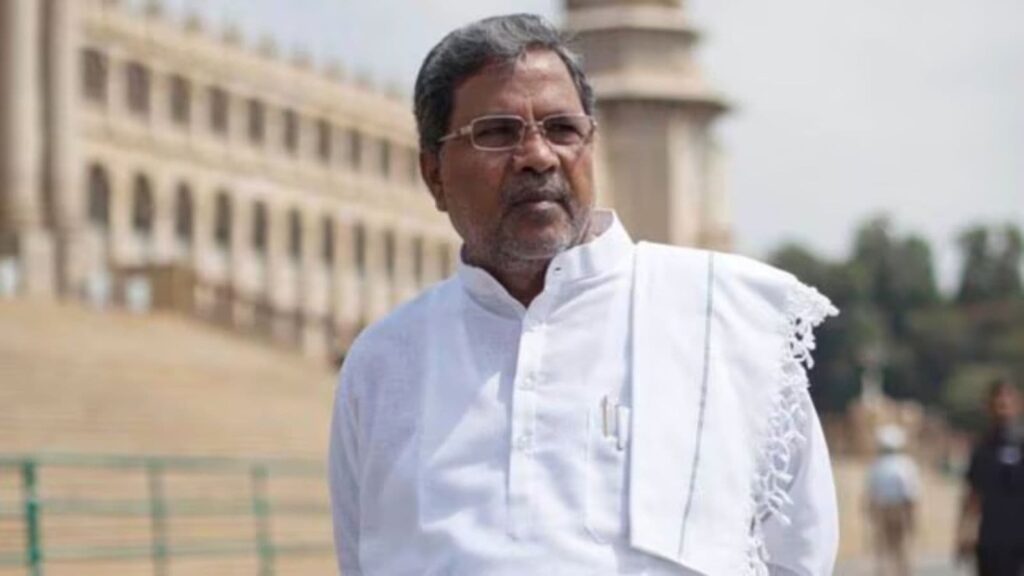The Karnataka Government on Tuesday constituted the Greater Bengaluru Authority (GBA) under the Greater Bangalore Administration Act 2024. The body will function with 75 members and come into effect immediately, according to a government order from the Urban Development Department. The Bruhat Bengaluru Mahanagara Palike will cease to exist from September 2.
Chief Minister Siddaramaiah has been appointed as the chairman and Deputy Chief Minister D K Shivakumar as the vice-chairman of the GBA. BBMP Chief Commissioner Maheshwara Rao will be the GBA’s chief commissioner.
Union Finance Minister Nirmala Sitharaman and Union Minister of State for Agriculture Shobha Karandlaje, both MPs from Karnataka, are among the nominated members. Several state ministers, including Ramalinga Reddy, K J George, Byrathi Suresh, Dinesh Gundu Rao, Krishna Byre Gowda, and Zameer Ahmed Khan, have also been inducted into the authority as ex officio members of the GBA.
Additionally, the leader of the Opposition in the Assembly, R Ashoka; Bengaluru MPs including Teajsvi Surya and Dr C N Manjunath; Rajya Sabha members including Jaggesh, Lehar Singh Soriya, and Jairam Ramesh; and Bengaluru MLAs including Rizwan Arshad, S T Somashekar, Dr Ashwath Narayana, N A Haris, S Suresh Kumar, and M Krishnappa, among others, have been appointed as ex officio members of the GBA.
Interestingly, the Bengaluru Metropolitan Land Transport Authority (BMLTA), which was envisioned to be an autonomous body responsible for planning and coordinating transport policies in the Bengaluru Metropolitan Area, has been placed under the GBA. Deepa Cholan, who serves both as commissioner of DULT (Directorate of Urban and Land Transport) and CEO of BMLTA, is also an ex officio member of the GBA in both capacities. The Government has not established BMLTA even though the Act stipulated a six-month timeline for it.
Amendment with limited wording after backlash
The constitution of the GBA comes after the Government introduced an amendment to the Greater Bengaluru Governance Act 2024 recently. Under the earlier law, the GBA was empowered to exercise functions, including with respect to the city corporations. The GBA was also vested with administrative functions and powers on the administration of the city corporations. However, following a backlash from civic groups and activists who moved the Karnataka High Court contesting such actions as a contravention of the 74th amendment, the Government introduced the amendment, removing the provisions. It instead replaces them with more limited wording wherein the GBA will only discharge “such functions as per provisions of this Act”, without direct reference to administrative control over city corporations.
The Government has restructured the GBA into five new municipal corporations, each to be led by a commissioner to be appointed soon. Until permanent offices are constructed, temporary headquarters will be set up at existing zonal offices: Hudson Circle (BBMP) for Bengaluru Central, Yelahanka for Bengaluru North, Mahadevapura for Bengaluru East, RR Nagar for Bengaluru West, and Jayanagar for Bengaluru South.
Story continues below this ad
Each corporation will have a commissioner overseeing operations, supported by a joint commissioner for revenue and two chief engineers. These chief engineers will manage roads, lakes, and stormwater drains. The GBA is expected to appoint four special commissioners to handle finance, health, revenue, and climate change.
Commission to define ward boundaries
According to BBMP officials, on September 3, a delimitation commission will be formed to define ward boundaries, with the process expected to conclude by November 1, as per the Government’s affidavit filed in the Supreme Court.
The Government has said that the formation of multiple corporations is in accordance with provisions under sections 5 and 7 of the GBG Act. The rationale is rooted in the urgent need to improve urban governance by making administration more localised and accountable. Bengaluru, with a population exceeding 13 million and facing constant infrastructural and service delivery challenges, has long struggled under a single civic body—BBMP. The government claims that each of these corporations will have independently demarcated jurisdictions with functional autonomy in urban planning, solid waste management, infrastructure development, and public grievance redress.

